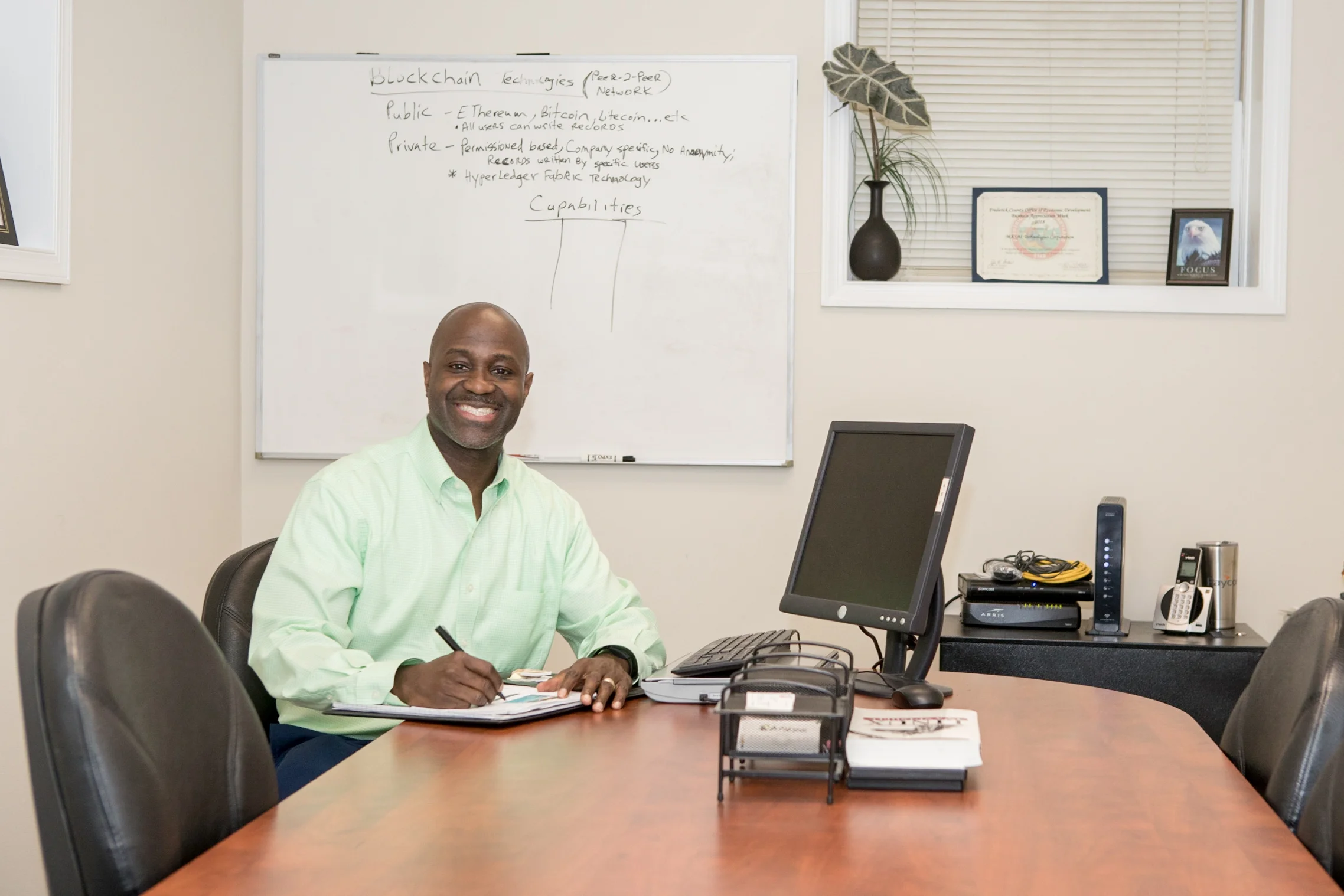Masai Troutman, Founder and CEO of MTC Integration, pushed himself for years to get where he is today—the very definition of “hustle.” But with success comes other challenges, and as Masai reminded with us, finding a balance between work and family is absolutely crucial. We sat down with him to talk more about the ever-changing world of IT services, and how he found his perfect balance.
Tell us the story of your business.
After my graduate studies, I started working for Accenture, a global consulting firm. Back in the day, there weren’t a whole lot of big time firms, so I worked at one of the top ones. I did that for a while, and I saw how they were doing consulting services. I realized I could do it on my own, so that’s what I did! I broke away from Accenture, and I got my first contract with Intel in Boston after I got certified and trained. It was just me, and from there I just did high performance delivery; I did a great job. In 2003, I started hearing more about federal work, so I would fly to D.C. and go to federal conferences for small businesses to hear how to do business with the agencies. It sounded like a rough road, but I went for it. I left the commercial side and we started doing subcontract work, and that’s when I really started learning how the operation works in the federal space and on military bases, and that set us up to win our first prime contract from Fort Detrick. After Fort Detrick, it became a lot more intense. So today, we’re trying to advance beyond the technology that got us here; we’re getting more into cloud solutions; cybersecurity; and we’re getting out of the large-scale enterprise applications; the finance logistics. It paid for everything and it kept us going, but the technology has changed so much, so we’re ramping up.
What do you wish you’d known?
If I had to do it over again, I would say wait on the Federal 8A Program [for small, disadvantaged businesses]. Don’t waste it. My buddies who use the 8A, a lot of them got big really quickly. The vision of it is that it gives you a jump-start if you get out there and meet people and gain confidence and earn your respect in the marketplace. As far as business is concerned, I would have gotten into cybersecurity a lot earlier. Some of my friends were in cyber, but I was doing my enterprise applications, my financing, and it was paying good money! It had me locked into this mindset. You don’t want to be locked in! You want to always be looking ahead.
What prepared you for owning a business?
I just had this drive. It was just desire, and I was really sharp in school. Education is a big deal, and I would say professional training is very important. Working at Accenture and having that hands-on exposure really helped. For me, working in that tough environment prepared me for being a CEO. The fact that I have a lot of technical skills helped too. I know how to run a business, but I also know how to get my hands dirty. That’s good and bad because as CEO, your time needs to be spent building relationships and making proposals so you can win big deals. But I think, especially for small businesses, it’s hard to focus on the big if you can’t take care of the day-to-day. I think my technical experience and my knowledge allows me to do both.
Masai Troutman has collaborated extensively with big-name firms and federal government agencies. What pushed him to chase those deals? “I just had this drive,” he says.
What advice do you have for other future or current entrepreneurs?
You have to have something of value to the marketplace, whether it's your knowledge, your ability, or your technical skills. You also need hands-on experience, I think, in the industry where you’re trying to advance. If you’re starting off as more of an administrator, you’re not going to be as valuable as someone who knows the product or service well. It’s hard to be a manager without really knowing the intricacies of and the decisions of what’s really going on in the operation. And honestly, at the end of the day, you have to be able to make money.
Are there any challenges specific to minority business owners?
It’s mostly access. It’s access to creating good, long-term relationships. I’ve been working with the same bank since I won my first contract back in 2003. So, if you’re a minority, you start and you stay with those key partners. As far as normal access to other things, it’s just not there. Being a young black man when I started, there are certain areas where you can go but you’re not necessarily going to see someone who looks like you, someone who can relate to you. It may just be strictly business with that person; you’re not really going to connect. That access...it’s so key because it allows you to build a relationship where you kind of care about each other, and then your odds of success are much greater. So, it’s about access to capital; access to the decision-makers.
What else would you like to reflect on?
I love how Frederick is family-oriented and activity-oriented. We love it here. It’s great for my family, and I know that family is always the top priority. It’s what drives me, and with my kids, it’s a busy time in life! People are always telling me ‘you could get a lot bigger’ but, you know, I’m happy. It depends on what you value.

